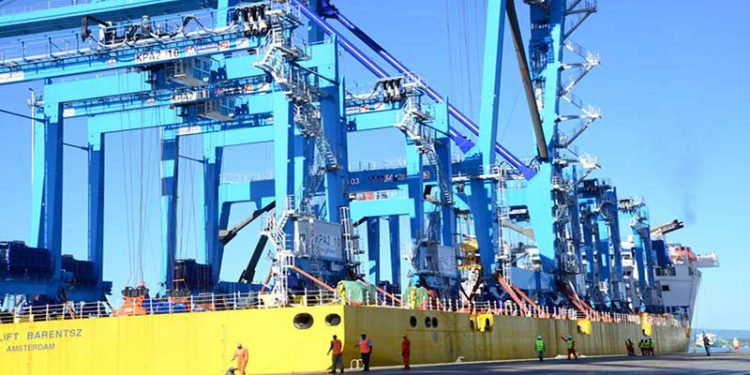A number of delays have been identified among the logistics players using Mombasa port, which have affected efficiency and competitiveness of the Northern Corridor.
Recommendations to address these bottlenecks have been spelt out in a recent report by the Northern Corridor Transit and Transport Coordination Authority (NCTTCA), which tracks implementation of various initiatives through Northern Corridor Transport Observatory, a monitoring tool that measures 36 indicators that track the performance of Mombasa port and the Northern Corridor.
Kenya Revenue Authority (KRA) has been asked to approve partial ship manifests before the arrival of the vessels at the Mombasa port to facilitate pre-clearance of goods. This will be addressed through the Integrated Customs Management System (Icms) which is at the tail end of full roll-out after use on Air Cargo since 2018 and the ongoing piloting on Sea Cargo Module at the port.
Partial lodging of the manifest will allow traders to make necessary preparations to clear the cargo from port- pay and arrange for the transport of the cargo in advance.
“Delays at Document Processing Center (DPC) calls for sensitization of clearing agents on proper and timely submission and automated document processing would be an instrument in lowering the time taken to clear goods,” the report observed.
The report also requests fast tracking of the ongoing effort to improve the cargo handling facilities at the Inland Container Depots (ICD) and procedures for receipts of the goods in ICDs and bonded warehouses.
“The implication is that there are delays in receiving cargo in the ICDs and in cancellation of transit bonds for goods which have reached their destinations. The delays is a sign of inefficiencies at the ICDs and bonded warehouses which causes delays in offloading goods from the trucks, thereby affecting turnaround time,” the report said.
The report proposes a survey to be conducted on the reasons the drivers stop along the corridor. This would include an in depth analysis of the points of stoppage and the reasons for this.
Other proposed measures include training the drivers on productivity management to achieve 120,000 kilometres per year per truck. The drivers should be paid per mileage to reduce unnecessary delays and wastage.
Shipping lines on the other hand should be made to understand the impact of the last mile changes, including late lodging or amendments of manifests on the overall logistics chain performance.
Agencies involved in clearing and handling cargo are encouraged to develop and implement stakeholder’s engagement strategy. This will ensure that the problem is identified as early as possible and communication passed.
The report urges Northern Corridor Member States to ease the process of granting work permits to trade facilitation agents in their countries as per the Northern Corridor Transit and Transport Agreement to enable them to work efficiently and minimize delays in evacuation of the cargo from the port.
To further minimize delays at the ports and border stations for goods in transit whose taxes are not paid at the port or border, the RCTG Carnet, a COMESA Regional Customs Transit Guarantee (RCTG-CARNET) Scheme, should be enhanced and used as a simplified customs declaration and bond security for goods declared in transit or for warehousing in destination countries.
Development of the new Terminal Operating System (TOP) and Truck Appointment System (TAS) which are being implemented will enhance container handling and truck turnaround time and ease congestion at the port and its environs, the report noted.
KenTrade has been working with the Kenya Maritime Authority (KMA) to implement the Maritime Single Window. The Maritime Single Window is meant to facilitate ship clearance procedures by providing a single online portal for the declaration of information on the arrival, stay and departure of ships between the shipping line/agent and the approving government agencies involved in the process.
It is a mandatory requirement for national governments to introduce electronic information exchange between ships and ports, which came into effect from 8 April 2019. This is aimed at making cross-border trade simpler and the logistics chain more efficient, for the more than 10 billion tons of goods which is traded by sea annually across the globe
This will reduce or eliminate the manual, decentralized, duplicated and unnecessary lengthy processes in the maritime sector which is affecting the ship turnaround





